Hi, we are…
A group of Land and Food Systems (LFS) students from UBC, and we are working on Vancouver Food Asset Maps for highlighting food preferences. Most of us in this group are in the Food, Nutrition, and Health (FNH) major, with the exception of one team member who is in Food Market Analysis. We are all very interested in food access and how it correlates with health outcomes. From reading our personal bio’s, it is obvious that we all have skills in different areas, which will come in handy throughout this project and compliment each other.
Akanksha Sharma
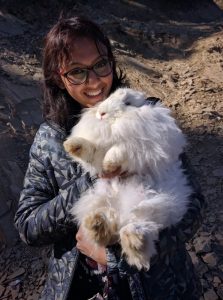
Hi, I am Akanksha Sharma, a third year international student majoring in Food, Nutrition & Health. I love to cook, take pictures of cool things, go for hikes and read lots of books. I also have a great love for animals, I have a ten year old dog back at home that I adore; if not for FNH, I’d be studying animal biology to be a vet. I am really passionate about the anthropogenic effects on the environment and am constantly finding ways to decrease my footprint on the planet and thus finding sustainable means of providing food, (from plants and animals) for the growing population is something I am interested to work in. I am also interested in researching the various ways food can help us stay healthy and the ways bad eating habits can lead to various diseases. I hope to work in public health after I graduate, helping laymen understand the importance of good nutrition and ways to staying healthy.
Availability of food according to diet preferences and cultural, economical & nutritional requirements for all people, at all times is necessary for community food security. I am excited to learn and I hope our work on this project with VCH will help in a small and substantial manner in improving Vancouver’s food security.
Candice (Yiwen) Zhang
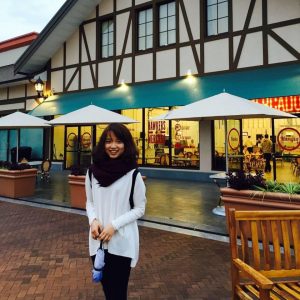
Hi there! My name is Yiwen (Candice) Zhang, a third-year LFS student majored in nutritional science. I love cooking, traveling, photography and I regard food as a great communication tool to bring families and friends together. As an international student, I am specifically interested in human nutrition and issues related to global food systems. Since nutrition is a key for healthy lifestyles and well-being, my goal is to get into the field of global food systems and international supply chains after graduation. By participating this program within the community, I hope to improve my communication skills and develop my networking skills, which could help me be prepared for future career.
Elena Zhao
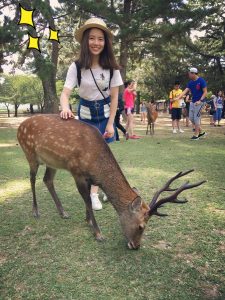
Hello there, my name is Yiyun Zhao (Elena). I am a third-year student studying Food Nutrition and Health at the University of British Columbia. I am interested in traveling, photography, playing basketball, music and playing the piano. Also, I love small animals! I have one guinea pig and one golden hamster at home. They are super cute, and I really enjoy having them with me, although every week it takes me a while to clean up their cages > <.
Personally, nutrition is not only about eating food, but also the science that supports people to reach their optimal health. So in the future, I aim to become a registered dietitian who can collaborate with doctors to save lives, while giving back to the community. Being able to communicate effectively and efficiently is an essential and indispensable skill for me to have. So this project becomes a great chance for me to gain some practical skills through working with partners in the community.
Marissa Gibbard
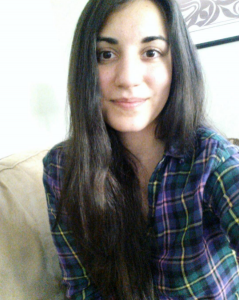
Hello! My name is Marissa Gibbard, and I am also a 3rd year Food, Nutrition, and Health major at UBC. As you may have guessed, I have a serious interest in food and nutrition, but I am especially passionate about social justice. I engage in many inter-sectional activist movements, and hope that working on this project will help inform my activism. As a vegan myself, I understand how important it can be to have access to appropriate food that you prefer, be for it ethical, religious, or cultural reasons, so I am very excited to help provide this food-preference information on an accessible platform for those who need it. I am also incredibly grateful for this opportunity to work within the community, and to further my understanding of stakeholder needs and existing assets within the Vancouver food system.
Yasaman Sairafi
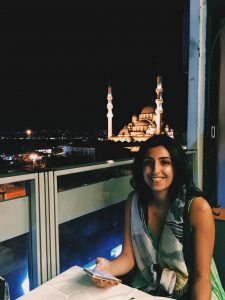
Hi there! My name is Yasaman Sairafi and I’m a 3rd year Food, Nutrition and Health major at UBC. I love traveling, and it was through traveling to different areas in the world, I became passionate about food and its link into different cultures and traditions. I am also very concerned about the quality and animal welfare aspect of the food we consume today, which is why I am proud to say that I have recently converted to vegetarianism as my own means of making our world more sustainable for all species. Being a vegetarian also gives me insight into how important, and sometimes difficult, it can be to find certain food preferences. Through this project I am very excited to work with the City of Vancouver and gain insight on new tools accessible to local consumers to improve access to food!
Sunny Chu
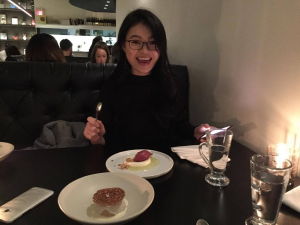 Hello! My name is Sunny Chu. I am a fourth year UBC student major in Food Market Analysis. I love foods and especially cook and bake myself. I usually bake in my spare time and try new recipes and alter them into my own healthy version. This is one of the reasons why I am in the Land and Food System faculty of UBC because I am concerned about our food system and hope that everyone can realize the importance of a healthy eating lifestyle. Therefore, I hope that I can achieve this goal through this project by working with VCH to build a better food asset map to cope with the food insecurity problem. And another fun fact of me is that I become a new succulent lover recently. Succulents are too cute to have and have a magic comforting effect to me like foods do!
Hello! My name is Sunny Chu. I am a fourth year UBC student major in Food Market Analysis. I love foods and especially cook and bake myself. I usually bake in my spare time and try new recipes and alter them into my own healthy version. This is one of the reasons why I am in the Land and Food System faculty of UBC because I am concerned about our food system and hope that everyone can realize the importance of a healthy eating lifestyle. Therefore, I hope that I can achieve this goal through this project by working with VCH to build a better food asset map to cope with the food insecurity problem. And another fun fact of me is that I become a new succulent lover recently. Succulents are too cute to have and have a magic comforting effect to me like foods do!
As a group…
Our goal is to build a positive relationship with partners and stakeholders within the community to help develop their ideas and update existing food asset maps. We aim to build upon a food asset map of Vancouver, providing information regarding cultural and ethnic food choices.
We chose this project in hopes of learning more about food asset maps, how they work, and to create greater awareness around food asset map availability and usage within Vancouver. Additionally, we hope to improve accessibility of those maps, and we are excited to work with the general public and address their individual needs and preferences.
We hope to…
Help address injustices within the Vancouver food system by first recognizing what food justice is and where food injustices occur in the community. Food justice exists when all people are meeting their basic needs, with opportunity for participation in the food system and without exploitation or oppression (Allen, 2008). As Allen suggests, “Solving justice problems in food and agriculture begins with recognizing that problems are created by people and thus resolvable by people.”
As a group, we also hope this project can help us build our research and professional communication skills with community partners and vulnerable groups. Furthermore, we wish to gain confidence in networking and distributing information with organizations and the public. We especially hope to develop a more detailed understanding ethnic, cultural, and preferential food assets in the Vancouver area.
For our project…
We will be working with Vancouver Coastal Health dietitians to create a food asset map of Vancouver that highlights food preferences, such as organic, kosher, halal, vegan, and vegetarian options. Vancouver Coastal Health (VCH) provides a wide range of medical (and related) care and resources for residents in the Greater Vancouver area and BC’s central coast. VCH also utilizes research, education, and care to promote health and wellness for people in Vancouver. We will be assisting VCH in creating a user-friendly, online map as a tool to help individuals identify food based assets within the community that fit their needs or cultural preferences.
Food asset mapping draws on the ideas and knowledge of community members and stakeholders in order to appropriately depict food assets in Vancouver. Since food asset mapping can include members of the community who may traditionally be left out of the research process, the project may also help increase food justice through direct involvement of community members in their food system (Freedgood, Pierce-Quinonez, & Meter, 2011).
The process began…
On January 23, we had our first meeting with the coordinators of our project, and we are all excited to start working hard! From our first impression, food asset mapping seems difficult because of the detail and precision it entails, but luckily hard working teams in the past have provided us with a solid foundation that we can build upon as a team. In this way, we think it will be easier for us to add on information, and to focus on detailing the food asset map.
From our first meeting, we understand that a lot of this project has to do with not only speaking with community stakeholders and partners, but also interacting with the general public to figure out what they need and want when considering food assets. Just as Ernesto Sirolli discusses in his TED Talk (link: https://youtu.be/chXsLtHqfdM ), our first meeting emphasized the necessity of first listening to the partners and organizations and public that we engage with, to better inform our project. This will insure we are adequately serving the needs of the community, rather than imposing our own interpretation of their needs.
We are excited to…
Be working together on this project, and are eager to begin exploring our community! We are sure there will be many surprises, curve balls, and crucial learning experiences as this project progresses, so make sure to check back soon for further updates!
Thanks for reading,
Candice, Elena, Marissa, Sunny, Yasaman, Akanksha
References:
Allen, P. (2008). Mining for justice in the food system: Perceptions, practices, and possibilities. Agriculture and Human Values, 25, 157-161. doi:10.1007/s10460-008-9120-6
Freedgood, J., Pierce-Quinonez, M., & Meter, K. (2011). Emerging assessment tools to inform food system planning. Journal of Agriculture, Food Systems, and Community Development, 2(1), 83-104. doi:10.5304/jafscd.2011.021.023
Vancouver Coastal Health. (2016). About Us. Retrieved from Vancouver Coastal Health: http://www.vch.ca/about-us/
Anonymous
January 16, 2017 — 11:15 pm